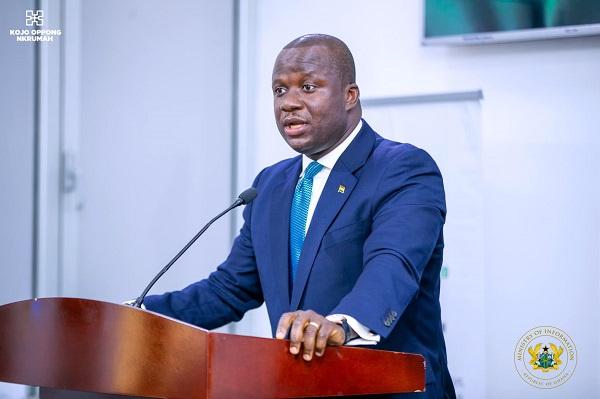A study by Boadi et al has established that two communities Ataso and Nnwerem in Ghana in 5 years have degraded 4.4 percent of the total area of the Offin shelterbelt forest reserve in addition to some admitted farms and some farm lands fringing the reserve through illegal mining activities.
Although farming remains the dominant occupation after the inception of illegal mining, the percentage of people into farming according to the study reduced from 90 percent to 76 percent in contrast to a 6.7 percent increase in trading activities.
The unregulated and often environmentally harmful practices of illegal mining also known as galamsey have had severe consequences on the environment, public health, and social fabric of the nation.
This article examines the impact of illegal mining in Ghana, shedding light on the critical issues that require urgent attention, actions taken so far by policymakers and sustainable solutions.
Deforestation and Habitat Destruction
One of the most evident consequences of illegal mining is deforestation and habitat destruction. To extract minerals such as gold, miners in the Ashanti, Eastern and Western Regions of the country often clear large areas of land with heavy-duty equipment, leading to the loss of valuable ecosystems, biodiversity, and wildlife habitats. The destruction of these forests also exacerbates climate change, as trees play a crucial role in absorbing carbon dioxide and regulating local climate patterns.
Water Pollution and Toxic Contamination
Illegal mining operations frequently use harmful chemicals such as mercury and cyanide to extract gold from ore.
In the environment, Rahman and Singh reported that short or long-term exposure to heavy metals poses health repercussions such as kidney disease, nervous system damage, intellectual impairment, cardiovascular problems, gastrointestinal difficulties, fracture of the bone, cancer in the lungs, bladder, kidney, liver, and skin and eventual death in humans.
Not only is human health affected but concentrations of these metals in plants alter plant growth and cause structural damage and deformation in their physiochemical and biochemical activities as well as alter the protein, carbohydrates, and fat contents in vegetables.
Soil Degradation
Unregulated mining practices often lead to soil degradation and erosion. Miththapala (2008) reported that land degradation leads to the loss of agricultural lands. Land degradation has caused the removal of top soils, vegetation, and trees with the use of heavy machines for mining gold deposits.
This has run down the nutrients of the soil and reduced its fertility for agricultural purposes. Available lands are contaminated by galamsey activities (Yeboah, 2008). Large areas of land used for cultivation are polluted through galamsey operations. Many cocoa farmers in Ghana are forced to exchange their farmlands for illegal mining, thereby threatening the cultivation and production of cocoa in the country.
Health Hazards and Public Health Concerns
According to Ahern and Stephens, mining remains one of the most hazardous occupations in the world, both in terms of short-term injury and loss of life, but also due to long-term impacts such as cancers and respiratory conditions, including silicosis, asbestosis and pneumoconiosis.
The Ghanaian Times reported an increase in cases of kidney diseases, and according to Dr Amoako Atta (head of the renal unit of the Komfo Anokye Teaching Hospital), the use of mercury by illegal miners is a contributory factor. In a study conducted by the Centre for Environmental Impact Analysis, the occurrence of mercury in the environment was reported to be a result of its use in the gold recovery process where the inorganic form of the metal is either washed into rivers or readily vaporized into the atmosphere.
Government Intervention
The government as a first step towards the fight against the menace placed a ban on artisanal and small-scale mining in January 2017 which was partially lifted in December 2018. A total of 600 miners were vetted and approved to kick-start mining in an environmentally friendly manner.
The government also paid for the education of 3,500 small-scale miners at the University of Mines and Technology in Tarkwa, to be taught how to adapt their operations to ensure environmental damage is minimized. The next action was the deployment of a security task force dubbed “Operation Vanguard” with a focus on flashing out illegal mining activities and enforcing the government’s ban on artisanal and small-scale mining.
Operation Vanguard faced its own set of corruption allegations and misconduct as the Military High Command had to detain three soldiers for allegedly collecting money from illegal miners.
Among the interventions was the introduction of the Green Ghana Initiative. The national exercise is part of an aggressive afforestation and reforestation agenda to restore degraded forest landscapes to contribute to global efforts in the fight against climate change and to mitigate watersheds.
Conclusion
The impact of illegal mining in Ghana is vast and multifaceted, touching upon environmental, public health, and social aspects. The detrimental consequences of this activity are far-reaching and demand immediate attention and intervention from the government, policymakers, and society as a whole.
To combat illegal mining effectively, a multi-pronged approach is necessary. Strengthening regulatory frameworks and enforcement mechanisms is crucial to curb illegal operations.
Encouraging sustainable mining practices that consider environmental protection and community well-being is equally important. Additionally, providing alternative livelihood options for miners and their communities can help alleviate the economic pressures that drive illegal mining activities.
Collaboration between the government, mining companies, non-governmental organizations, and local communities is key to finding sustainable solutions to the illegal mining crisis in Ghana.
By recognizing the scientific impact of illegal mining and taking collective action, Ghana can protect its environment, preserve its cultural heritage, and secure a healthier and more prosperous future for its citizens.
WRITER: Nii Ayikwei Okine


Comments are closed.